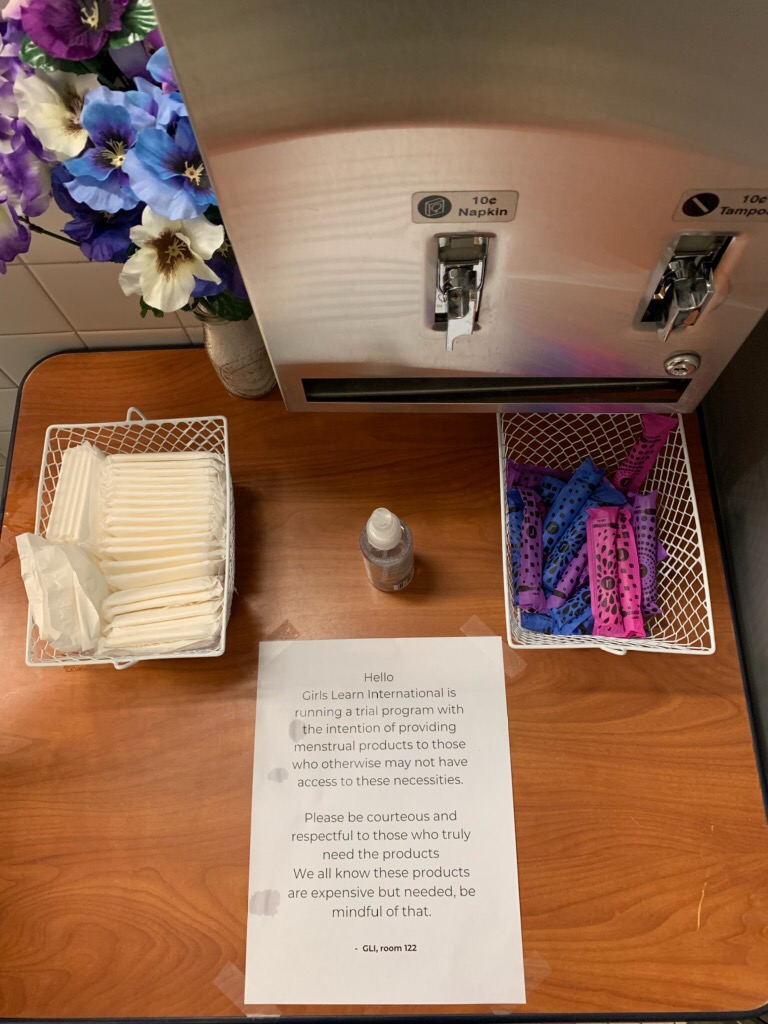Let’s Talk About Period Poverty
Every girl should have access to feminine hygiene products at school, without concern for cost.
Period poverty is known as the lack of access that women have to feminine products because they can’t afford them. The sensitive subject is often avoided leaving many women and girls uneducated and in need of basic necessities .
Most girls have experienced the panic of their period sneaking up on them while they are at school and not being prepared. But not every school has the resources to help.
As a female student at Dallastown High School, I do consider myself lucky in the fact that our school provides feminine hygiene products in the nurse’s office. But I know that many other girls around the world aren’t as lucky and it’s time that we brought awareness to that so we can start to make change.
According to the University of Michigan, “period poverty” refers to the prevalent phenomena of being unable to afford products such as pads, tampons, or liners to manage menstrual bleeding. But due to the stigma surrounding women and their periods, it’s a problem that is often left unspoken about.
According to CNN, 1 in 5 girls are unable to afford basic period products, and 1 in 4 girls are forced to miss school due to period poverty.
Because girls in impoverished areas can’t afford pads and tampons, they are missing out on school and their education is suffering due to uncontrollable factors.
The biggest reason why schools should provide menstrual products is the simple fact that they are necessary for girls to get through life.
Products like pads and tampons are necessary for girls who can’t control when or where they get their periods. School’s can provide toilet paper, it would only make sense that they would provide pads at the very least as well.
No girl should ever have to miss school, putting her education at stake, simply because she can’t offer the overpriced products needed to get through the day as her body goes through something out of her control.
According to CNN New York City provides public schools with period products, and while that is a great stride towards progress, the world still has a long way to go.

Last year Dallastown’s Girls Learn International club provided period products in the girls bathroom in the English hallway.
They relied on donations to keep the program running. Eventually, the supplies and the donations ran out.
While that was a right step in the direction, it shouldn’t be on school clubs to provide sanitary products, it should be the job of the school.
So what can we do to help this process move along?
To start, we can remove the stigma around periods. Menstruation is a natural part of girls’ biology and it’s nothing to be ashamed of.
When we view talk surrounding periods as uncomfortable, then it stops us from having important conversations about the real issue: how that time of the month can cause a lot of problems for girls dealing with period poverty.
Having conversations can hold a lot of power when it comes to educating and spreading awareness towards a cause.
Conversations allow us to take steps towards providing necessary products for girls so they can succeed without having to worry about their period getting in the way.
Every girl has the right to a successful education, and no girl should be deprived of that because of obstacles they can’t avoid.
Your donation will support the student journalists of Dallastown Area High School. Your contribution will allow us to purchase equipment and cover our annual website hosting costs.